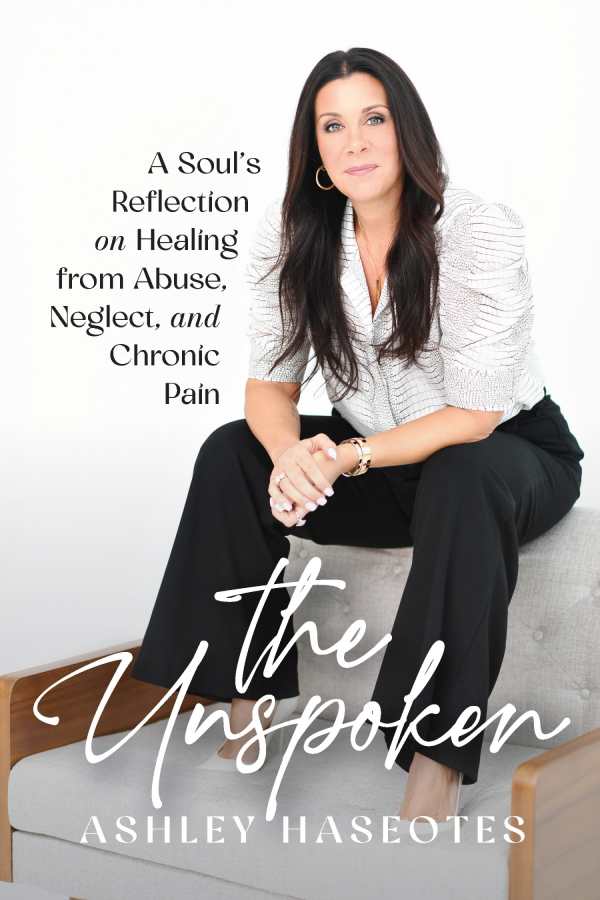The Unspoken
A Soul's Reflection on Healing from Abuse, Neglect and Chronic Pain
Equipping its audience with confidence for their own growth from trauma, The Unspoken is a compelling memoir about progressing from pain to health.
Ashley Haseotes’s The Unspoken is an intimate memoir about trauma and healing.
Haseotes’s story begins with one of the biggest stressors imaginable: her baby was gravely ill. From there, the story weaves back and forth in time, cataloging Haseotes’s experiences of grief. They began at an early age, though the adults in her life failed to address that grief; continued in the form of shame and broken relationships in early adulthood; and appeared via other emotional traumas over the years. Through it all, Haseotes persevered with diligence and hope. Still, the cumulative weight of loss and grief eventually overwhelmed her, physically as well as emotionally, culminating in a full year of migraines that left her unable to get out of bed.
The book shows the limits of a can-do attitude; it reveals that positive thinking is no match for trauma. It digs beneath the veneer of feel-good aphorisms that often do damage to people, such as “It was God’s plan.” These insights are powerful doors to healing, based on deep insights into the complex realities of trauma.
The book presents a full, embodied definition of trauma: “a jolt of energy into the human nervous system, and … that energy needs to be released.” It explains, but more important, it shows through Haseotes’s story that the sympathetic response, the fight or flight system of the body, gets overloaded by constant stress, resulting in an imbalance of cortisol and adrenaline that leads to chronic pain, poor digestion, and the lack of sleep: it makes people sick. This wisdom is the basis for the book’s whole-person healing model; without this understanding, people become stuck, just like Haseotes was.
While the empathetic, interpretive recounting of Haseotes’s story is the most engaging part of the book, it also includes insights that will assist others in pursuing their own healing. The narrative shows how Haseotes learned to address conflict, summon the courage to become her authentic self, and deal with lifelong realities like trauma triggers. She showcases healing modalities like Reiki, meditation, and craniosacral therapy.
The narration is beautiful, heartfelt, and, at times, painful. It moves at a steady, swift pace, slowing only to concentrate on key scenes and vital seasons of growth. It also acknowledges difficult emotions, contextualizing their broader purposes for human flourishing. Heartfelt and detailed, this work is faithful to the people and traumas it describes.
While the book has self-help elements, it’s not prescriptive. It puts Haseotes’s story at its center to generate empathy before proposing a path for others to consider. This balanced approach is freeing.
Equipping its audience with confidence for their own growth from trauma, The Unspoken is a compelling memoir about progressing from pain to health.
Reviewed by
Melissa Wuske
Disclosure: This article is not an endorsement, but a review. The publisher of this book provided free copies of the book and paid a small fee to have their book reviewed by a professional reviewer. Foreword Reviews and Clarion Reviews make no guarantee that the publisher will receive a positive review. Foreword Magazine, Inc. is disclosing this in accordance with the Federal Trade Commission’s 16 CFR, Part 255.

